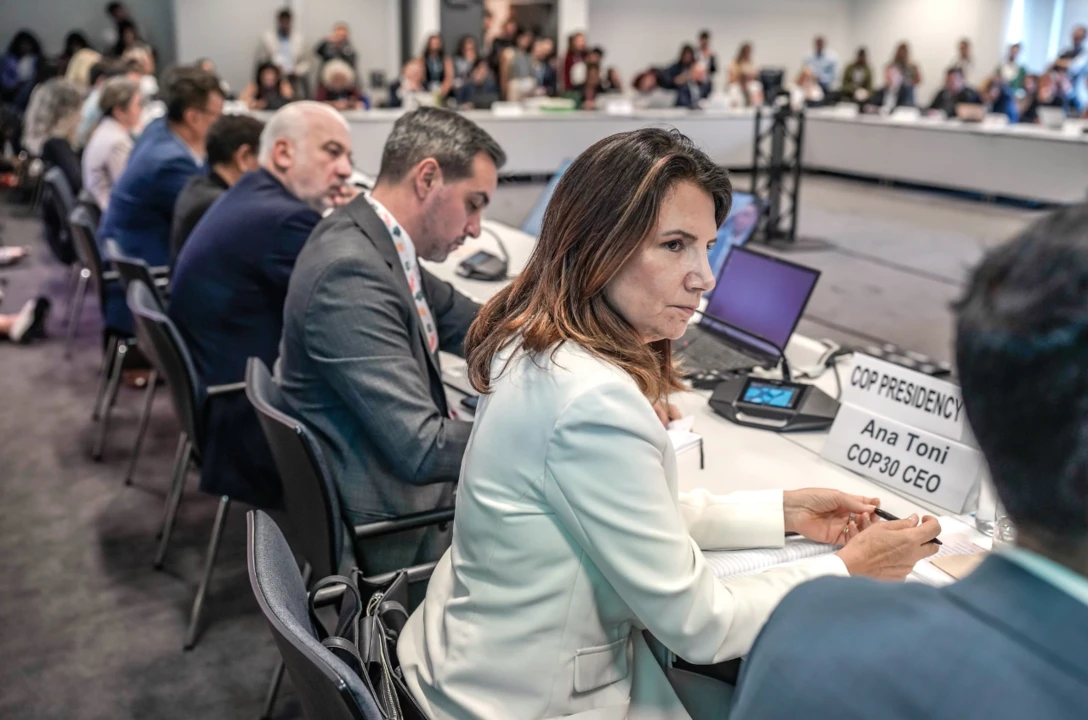From Rio-92 to COP30: Brasil propels international dialogue for integrated environmental governance
Systemic action and the recognition of synergies between environmental conventions were the focus of an event promoted by the Brazilian COP30 presidency. At a preparatory meeting in Bonn, Germany, Brasil is coordinating efforts to breathe new life into multilateralism on the climate agenda

By Franciéli Barcellos de Moraes | COP30
During the 62nd Session of the United Nations Framework Convention on Climate Change's (UNFCCC) Subsidiary Bodies (SB62) in Bonn, Germany, the Brazilian COP30 Presidency convened a special panel. The session focused on the synergies among the three Rio Conventions and the upcoming COP30 in November, sending a clear message: climate action must become systemic. Isolated efforts, the discussions underscored, will not achieve the desired goals.
Although this is the first year that the most significant event in the UN climate calendar will be held in the Amazon region, Brasil's leadership on this issue is nothing new. Thirty-two years ago, the United Nations Conference on Environment and Development (UNCED), also known as Rio-92, was held in Rio de Janeiro. This gathering is considered a milestone in the history of international environmental commitments, leading to two subsequent events: Rio+10 in Johannesburg, South Africa in 2002 and Rio+20 in Rio de Janeiro, Brasil in 2012.
At the Bonn meeting — the former capital of West Germany and a preparatory step for the upcoming COP30 in Belém, capital of the state of Pará — Ana Toni, CEO of COP30, emphasized the critical importance of synergy for addressing global environmental challenges in an integrated manner, particularly concerning forests and the climate crisis. Rooted in a tradition of cordiality, dialogue, and cooperation, Brazilian diplomacy seeks to strengthen multilateral structures and overcome the current fragmentation of international environmental governance.
"The return to Brasil at COP30 is not just symbolic. It is a powerful reminder of the common ground that gave rise to the three Rio conventions. This shared basis drives us to act with greater coherence, efficiency and urgency on the climate, biodiversity and land use agendas," said Dr. Osama Faqeeha, Deputy Minister of Environment at the Ministry of Environment, Water and Agriculture of Saudi Arabia and advisor to the Presidency of COP16 in Riyadh, which took place last year.
Contributions from UN agency experts and participating countries alike converged on a central theme: strengthening integration across environmental agendas — climate, oceans, land, and biodiversity — is not merely a social imperative but also a strategic approach to maximize returns from shared investments. Other key takeaways included the importance of nature-based strategies and ecosystem-based approaches, alongside a call for greater private sector engagement, given its substantial utilization of the planet’s natural resources.
"Children of Rio-92" Section
The commitments made at the 1992 Rio Conference were crucial not only for establishing the United Nations Framework Convention on Climate Change (UNFCCC), which laid the groundwork for global cooperation in addressing the climate crisis and guiding the Bonn meeting, but also for paving the way for the creation of the Convention on Biological Diversity (CBD) and the United Nations Convention to Combat Desertification (UNCCD). Both conventions participated in the discussion.
“We need to approach all of these issues holistically, within the broader framework, with attention to specific communities and peoples. We must consider multiple sectors, recognizing that the matter cannot be confined to the small offices of Environment Ministries — it must involve entire governments and whole societies,” said Tristan Tyrell from the CBD Secretariat.
Birguy Diallo, Head of Global Policy, Advocacy, and Regional Cooperation at the UNCCD, stressed that action cannot await perfect institutional architecture at either the international or local level. “We often view land as a space of competition — for resources, political attention, or institutional control. However, we can use it as a bridge to truly build these synergies,” she concluded.
Bonn 2025
SB62 continues until June 26, encompassing sessions of the SBSTA (Subsidiary Body for Scientific and Technological Advice) and the SBI (Subsidiary Body for Implementation). This annual Bonn conference convenes 18 United Nations agencies, including the UNFCCC Secretariat.
English version: Trad. Bárbara Menezes.
Proofreading by Enrique Villamil.
